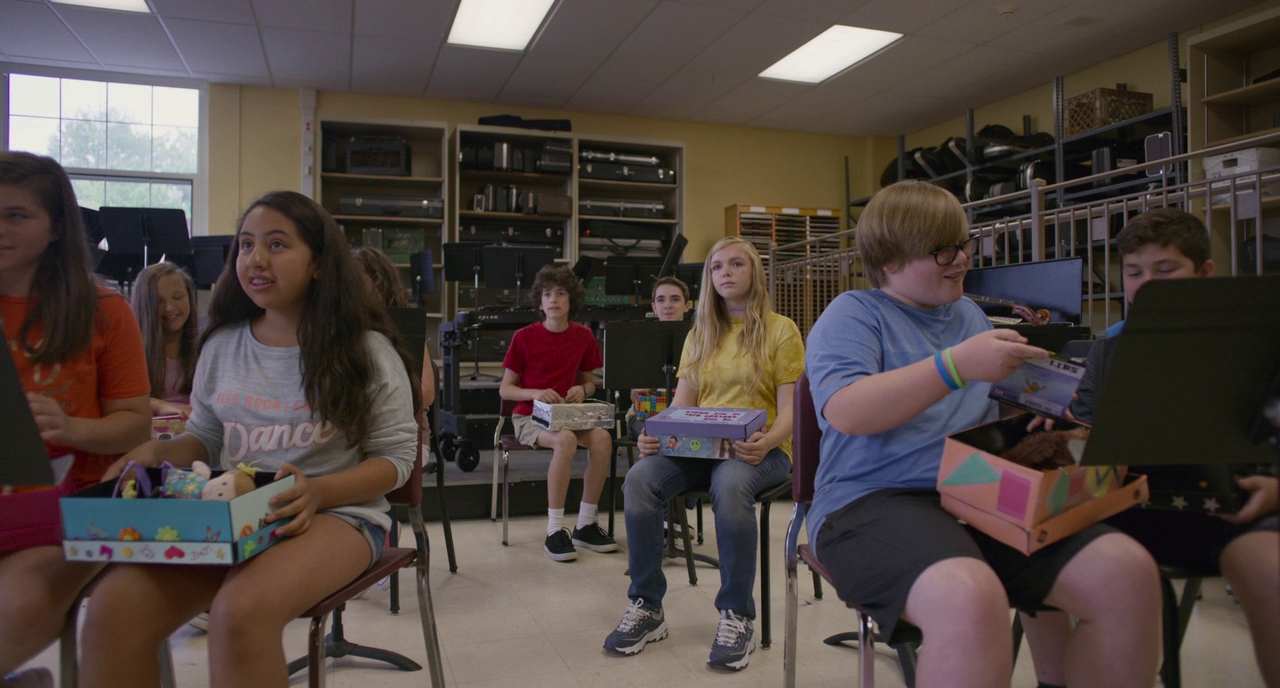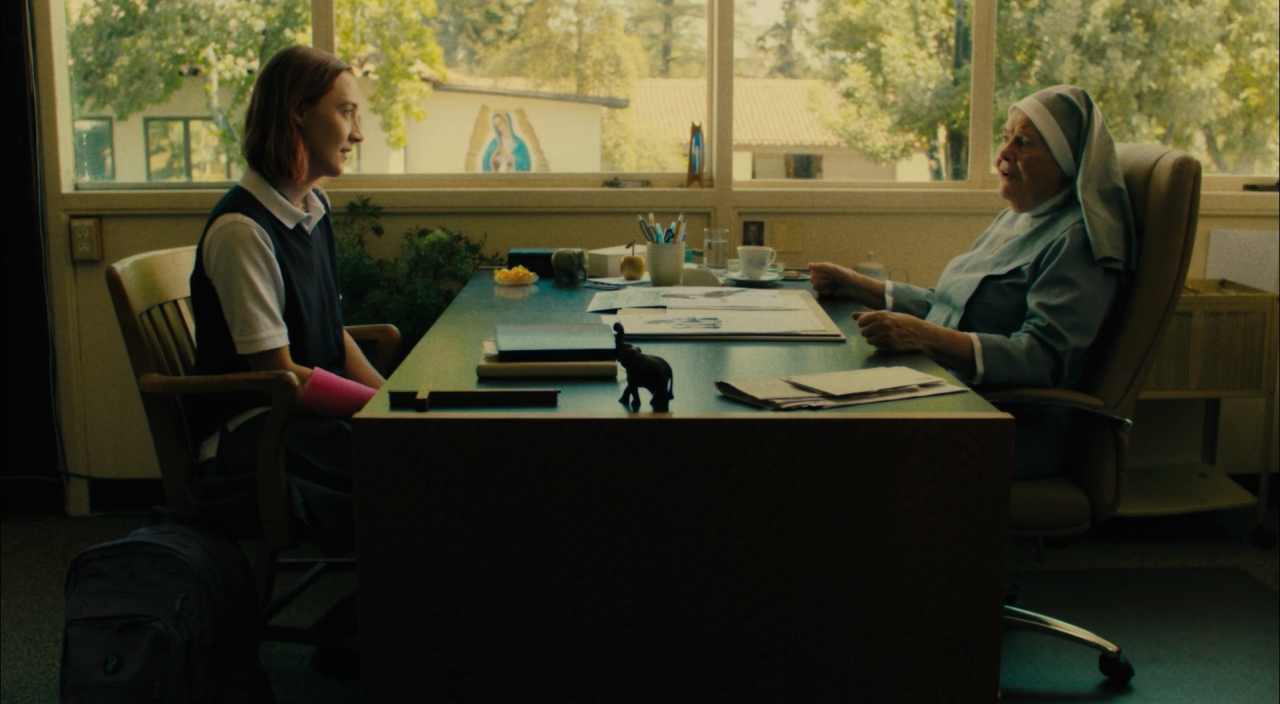Through Parent Eyes: Movies That Hit Different After Having Kids

When my daughter was born three years ago, I never expected that along with the sleepless nights and endless diaper changes would come a completely new way of experiencing movies.
That first time I tried to watch Finding Nemo during a late-night feeding session, I found myself fighting back tears during scenes that had never affected me before. Suddenly, Marlin's desperate search for his son wasn't just a cute animated adventure – it was every parent's worst nightmare brought to life. From flinching at dangers I never noticed before to finding myself unexpectedly moved by even the smallest parent-child interactions, my movie-watching experience transformed overnight.

Let me share how parenthood reshaped my relationship with cinema, from those animated features that now feel almost too real, to the scenes that hit so close to home they leave me breathless. Whether you're rocking a newborn or chasing a toddler, these insights will validate that strange new way you've been experiencing films – and might just help you discover some new favorites along the way.
When Animation Gets Too Real: Kids' Movies That Pack an Emotional Punch
The first time I rewatched Up after becoming a parent, I had to pause the movie during the opening montage. Those precious four minutes chronicling Carl and Ellie's life together – their dreams, their struggles with infertility, their quiet moments of joy and heartbreak – had always been touching. But now, watching it while my own daughters slept upstairs, it felt like someone had reached into my chest and squeezed. In particular, I imagined how differently our lives would have been if our own challenges with conceiving years ago had turned out like Carl and Ellie's story. 😢 What had changed wasn't the animation or the story, but rather how parenthood had cracked open my heart, making it more vulnerable to these perfectly crafted moments of storytelling.

Pixar seems to have mastered the art of hiding emotional depth bombs in plain sight. I realized this anew last week, when my seven-year-old daughter slammed her bedroom door after a playdate gone wrong. As I sat on her bed, watching her struggle to articulate why she felt so awful, I found myself thinking about Inside Out . The movie had shifted from being a clever concept about emotions into my everyday parenting reality. "Do you remember how Joy wanted to keep Sadness away from Riley's memories?" I asked her, watching her nod through tears. "But sometimes, like when Riley missed Minnesota, being sad helped her understand what was important." My daughter looked up, her face brightening with recognition. "Like how I'm sad because Emma is my best friend, and I don't want to lose her?" Just like that, Riley's emotional journey became our family's shared language for processing difficult feelings. That scene where Joy finally understands Sadness's role in Riley's life isn't just beautiful storytelling anymore – it's a blueprint for those moments when I have to resist the parental urge to immediately "fix" everything and instead let my daughter feel her full range of emotions, messy as they may be.
The Scenes That Make Parents Look Away
There are certain movie scenes that seem to come with a hidden trigger warning: "Caution: Watch out if you have kids." 🥹
One day you're casually rewatching a familiar film, perhaps with your own child curled up beside you, when suddenly a scene that once passed unremarkably now feels like an emotional sucker punch. These moments sneak up on you, transforming what used to be simple entertainment into an exercise in emotional endurance - we're all part of this secret club of parents who now watch movies through anxiety-tinted glasses.
The first time you watch Cast Away as a parent hits completely different. Remember that scene where Tom Hanks loses Wilson, his volleyball companion? Well, last month, as I watched my daughter's favorite stuffed penguin disappear under the waves during our beach holiday, that scene crashed back into my memory with startling clarity. The pure panic, the desperate swimming, the relief when I finally grabbed that soaked bird – suddenly Hanks's performance felt less like acting and more like documentary footage. There are some scenes that don't just make you look away; they make you feel like you're living through your worst parental fears.
Nothing could have prepared me for rewatching Lion King with my kids. That wildebeest scene? I used to think of it as a dramatic plot point, but now I find myself inventing excuses to leave the room. Last viewing, I suddenly "remembered" urgent laundry that needed switching right when Mufasa started climbing the cliff. It's not just the death scene itself – it's Simba's small voice calling out, the way he nestles into his father's lifeless body, searching for warmth that's no longer there. When my six-year-old asked why I was making sniffling sounds from the laundry room, I blamed it on dust allergies. These moments tap into our deepest parental anxieties about protecting our children, and sometimes, about leaving them too soon.
Even seemingly innocuous films now contain scenes that feel like emotional ambushes. Take Big Hero 6 – that moment when Tadashi runs into the burning building. As a parent of a budding tween who's just starting to show signs of that same noble, but terrifying, instinct to help others at any cost, I find myself having to steel my nerves during this scene. Last week, my eldest proudly told me how he stood up to a bully who was picking on a younger kid, and while my heart swelled with pride, my mind flashed to Tadashi's final smile before he disappears into the flames. These scenes don't just make us look away because they're sad; they make us look away because they force us to confront the terrifying truth that we can't always protect our children from their own brave hearts.
Parent-Child Relationships on Screen: The Stories That Ring True
It's easy for Hollywood to get family relationships wrong. So often, on-screen parents are either flawlessly wise or comically clueless, while children seem to exist in a world of extreme rebellion or sugar-coated perfection. But occasionally, a film comes along that captures the raw, messy truth of family life – those moments between the big dramas where real relationships live. These aren't just stories about perfect parents or troubled teens; they're honest portraits of the daily dance between parents and children, complete with misaligned expectations, unspoken love, and those rare, precious moments when understanding breaks through.
It happened during movie night last Thursday. In Eighth Grade , watching Kayla's dad try and fail to connect with his phone-absorbed daughter over dinner, then later catch her scrolling through social media at midnight, I caught my wife giving me that knowing look. Just that morning, we'd had the exact same silent breakfast with our seven-year-old, complete with the awkward attempts at conversation met with noncommittal grunts. There's something almost painfully accurate about how the film captures those early tween years – not the dramatic moments, but the quiet ones filled with parental worry and confused love. When Kayla's dad sits in his car outside a mall, watching to make sure she makes it safely into her friend's house, I saw every parent who's ever pretended they weren't anxiously tracking their child's location app.

Lady Bird nails another truth about parenting that rarely makes it to screen: the way love and frustration can exist in the same breath. That car scene where mother and daughter go from appreciatively listening to an audiobook together to having a full-blown argument in seconds feels like it was ripped straight from my own life. Last month, during what should have been a simple road trip with my daughter, we cycled through deep conversations, tense silences, and tearful reconciliations – all before reaching lunch. Marion McPherson's struggle to balance her criticism and fierce love for her daughter hits home because it shows parenthood in all its messy complexity, not the sanitized version we often see.

In wrapping things up, it's clear that becoming a parent really changes the way we see movies. Suddenly, scenes that made us laugh or cry before now hit us in a whole new way. These films become more than just entertainment; they tap into our own experiences and emotions.
So next time you pop some popcorn, take a moment to reflect on how these stories resonate differently now that you're a parent. It's a beautiful reminder of the journey we're on and the lessons we're learning along the way.
About the Author: Michael Cho
